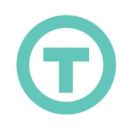Bloated with costly and superfluous third-parties, time-consuming processes and skyrocketing costs, today’s lending industry needs an overhaul. Fortunately, crypto loan companies are here to help.
What Are Crypto Loans?
Crypto lending uses blockchain’s unbiased and decentralized network of nodes to reduce loan processing time. Instead of paying exorbitant processing fees and waiting up to 60 days for loan approval, individuals and small businesses can now apply and receive approval for a crypto loan in a matter of minutes. In fact, it’s estimated that the digital lending industry will grow 25 percent by 2030.
How Do Crypto Loans Work?
Crypto loans use blockchain’s distributed ledger technology, or DLT, to approve loan applications. DLT is a decentralized infrastructure with sets of protocols that allow for access, validation and record keeping to approve transactions. Crypto lending’s use of DLT blockchain technology makes it different from traditional lending.
There are two main types of crypto loans: centralized and decentralized. CeFi loans give a lender control of a borrower’s cryptocurrency during the repayment term, while DeFi loans use blockchain smart contracts to hold borrower’s responsible for loan requirements. In a DeFi loan contract, the borrower retains their crypto assets, but if they default, the lender can issue automatic actions to the account.
Blockchain-based smart contracts ensure that both loan seekers and lenders agree to fair and feasible terms regarding things like proof-of-funds and payment planning. These real-time contracts validate and record transactions without the use of pricey lawyers and banks, and the decentralized nature of alternative lending lets borrowers access a larger pool of competitive financing offers.
The Risks of Crypto Loans
Blockchain lending may be ideal for borrowers whose crypto assets will increase in value over time — but they are also risky for this same reason. As many crypto loans require collateral, there is a greater chance for loss if the value of a borrower’s particular cryptocurrency decreases.
Crypto accounts also aren’t protected by the FDIC, meaning there is no federal insurance to cover a borrower if a crypto loan exchange fails. Another disadvantage to crypto’s lack of FDIC coverage is that crypto loan companies do not have to maintain a certain amount of liquidity.
This means that the lender may be unable to return the borrowers’ collateral and assets if there is a market crash or if the company experiences a large number of defaults on loans or bankruptcy.
Since cryptocurrency value is so prone to fluctuations, lending platforms may also ask borrowers to increase their collateral. This might happen if a currency’s value drops and borrowers’ LTVs are too high for the loan company to maintain.
Crypto Loan Companies
Whether for blockchain mortgages, business loans or bonds, crypto lending is changing the way we use financial technology. Here are just a few crypto loan companies using blockchain in lending.
Location: Fully Remote
SALT uses blockchain’s flexibility to offer cash loans that leverage digital assets. By leveraging Bitcoin, Ether or Dogecoin, for instance, borrowers can lock into cash loans from 12 to 60 months with an APR as low as .52 percent.
SALT is available for business or personal loans in almost every U.S. state. The company has also expanded its services to New Zealand, Brazil, the U.K. and Switzerland.
Location: Jersey City, New Jersey
BlockFi is a lending platform that uses crypto as collateral. Borrowers can receive 12-month cash loans by leveraging their Ether, Litecoin or Bitcoin. BlockFi received $1 billion from a 2022 round of funding.
Location: Denver, Colorado
The Liquid Mortgage platform directly connects borrowers with lenders. With Liquid Mortgage, borrowers have a single blockchain platform that helps them track and manage payments and protects their data using encryption. Lenders have smart contract abilities and real-time transaction data.
Location: Fully Remote
Nexo offers crypto loans that are compatible with over 40 different currencies. Borrowers may be able to get approval within a day in some cases as well as a 0 percent APR. The platform features repayment plans with no set schedule, allowing borrowers to pay partially or in full whenever they’d like.
Location: San Francisco, California
Figure combines artificial intelligence and blockchain to help members access lines of credit and home loans. Figure’s Crypto Mortgage Plus platform connects borrowers with home loans in minutes. Borrowers fill out a short application and, once they’re pre-qualified, the platform gives them payment options and a video call to a notary to make all documents official.
Location: Fremont, California
WeTrust uses blockchain to leverage social capital and personal trust networks in financial lending. By eliminating third-parties, credit and loan seekers rely on social safety networks to verify and approve responsible loans. WeTrust’s Trusted Lending Circle platform uses blockchain to house everything from credit identities and scores, to lending and mutual insurance, under one roof.
Location: Vilnius, Lithuania
SpectroCoin offers loans to borrowers who hold Bitcoin, Ethereum, XEM and DASH currencies. Borrowers can repay loan cryptocurrencies as well as Euro. The company offers loans for as low as €25 or as high as one million Euro.
SpectroCoin has a variety of other crypto services like a wallet, a crypto-fiat exchange service and debit cards.
Location: Austin, Texas
Unchained Capital lends cash to long-term cryptocurrency holders. Unchained Capital offers Bitcoin-leveraged loans for personal, small business and real estate use. Once a borrower is locked into a loan, Unchained holds their crypto in a blockchain-secured multisig vault that requires the permission of any two of the borrowers, company or third-party key agent to release the collateral. This helps avoid a single point-of-failure.
Location: Remote
Coinbase enables eligible customers to borrow USDC and use Bitcoin and Ethereum as collateral. Using its mobile app, users can set up and manage their loans directly, as well as monitor loan health, add collateral, make repayments and manage alerts.












